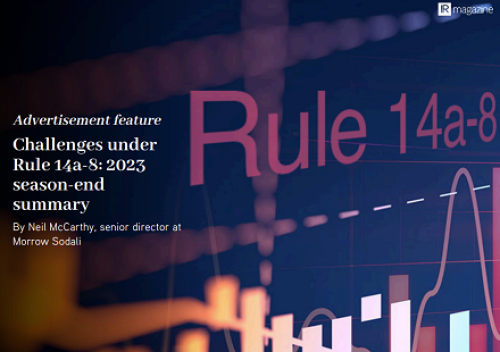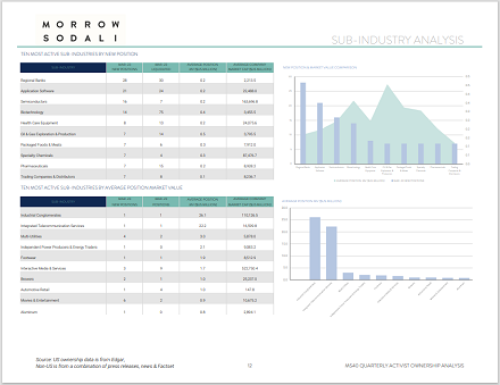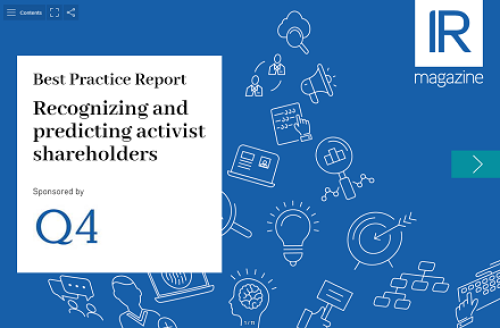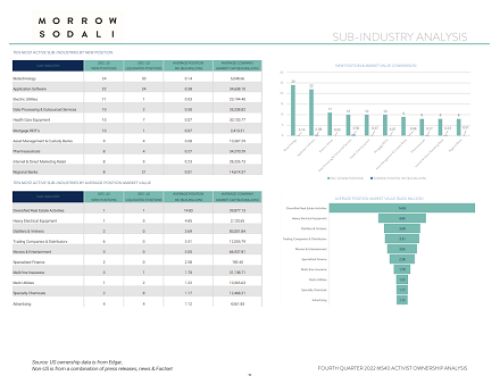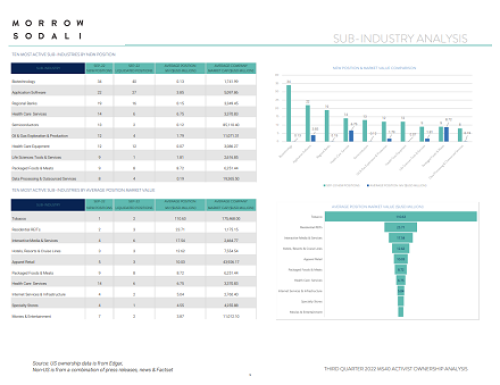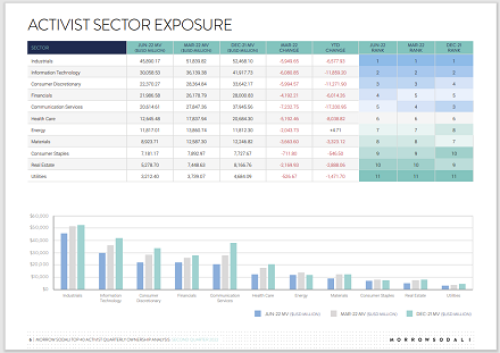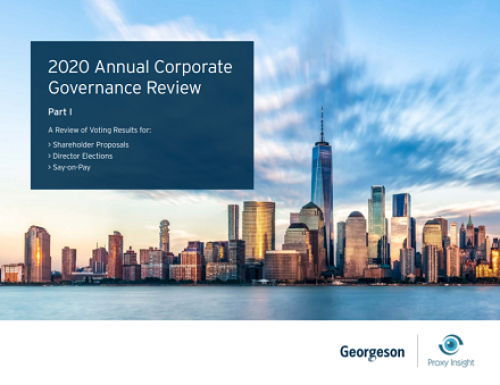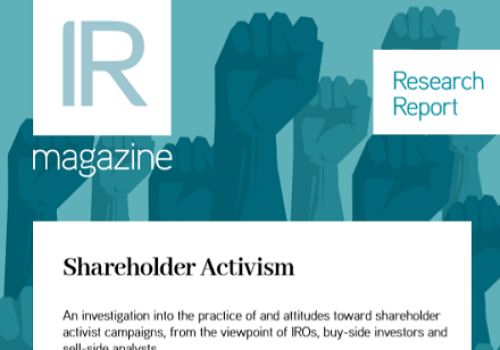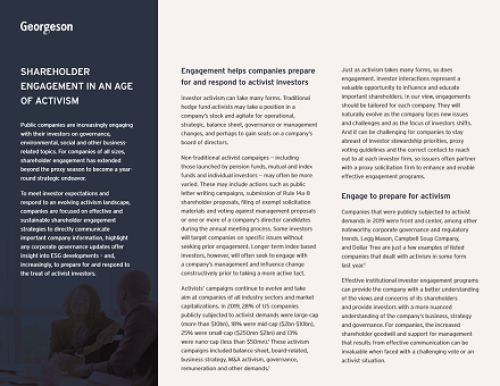Female-run companies are much more likely to be both targeted by and then co-operate with activist investors. And a new study suggests that this phenomenon results from a feedback loop fed by gender stereotypes rather than any inherent differences in management style.
Using an experiment, US researchers show that investors evaluate a firm as less attractive when a female CEO uses an unco-operative response to activism. The reverse applies to men. Investors think less of male CEOs who display a willingness to consider activist proposals.
‘Investors penalize CEOs if they communicate a response to activism that is inconsistent with gender-based stereotypical expectations, where females are expected to be more co-operative and males more aggressive,’ explains study co-author Scott Jackson, assistant professor of accounting at the University of South Dakota.
‘If managers anticipate this, their behavior may be driven, at least partly, by fear of a backlash for deviating from expectations.’
In concurrent experimental research, Jackson examines how the particular kind of activism interacts with CEO gender. When CEOs ‘match’ the activism type (that is, males with more profitability-focused activism and females with environmental and social-focused activism), investors – male and female alike – are more likely to perceive that CEO as better equipped to address the activism.
Importantly, however, Jackson also discovers a simple way that CEOs – especially women – can dramatically reduce this stereotype-driven backlash.
‘Female chief executives facing immediate, bottom-line activism can disclose an optimistic earnings guidance figure – either point or ‘Female chief executives facing immediate, bottom-line activism can disclose an optimistic earnings guidance figure – either point or range,’ says Jackson. ‘This seems to significantly attenuate investors’ reliance on gender-based stereotypes.’
Attractive spreads
Plenty of academic research documents the rewards of investor relations in public equity markets. Now a new study has uncovered its relevance in private debt markets as well.
Sampling almost 18,000 syndicated loans between 2003 and 2015, US researchers find companies with dedicated investor relations officers enjoy 6.6 percent lower loan spreads than those without. These companies can also expect lower collateral requirements and performance covenants. And borrowers with long-tenured IR professionals see the biggest benefits.
‘IR professionals can have a much broader impact in the financing of corporations than researchers previously thought,’ explains study co-author Kimball Chapman, assistant professor of accounting at Washington University. ‘They help to shape the narrative not only for public markets, but also for private ones.’
The state of corporate governance in Palestine
Generally, good corporate governance has been shown to enhance overall performance across a variety of firms and locations.
But a study of 32 companies listed on the Palestine Exchange (market cap: $4.23 bn) finds scant evidence of this relationship. Indeed, controlling for financial leverage and total assets, researchers uncover a significant negative correlation.
‘This may be because some directors do not possess or have access to adequate expertise,’ opines study co-author Raed Abueid, professor of accounting and finance at Al-Quds University. ‘Our results suggest that listed firms should enhance their application of corporate governance principles – especially disclosure of board performance evaluation mechanisms.’
He tells IR Magazine that while Palestine has a nominally advanced governance code, regulatory oversight is weak and firms provide hardly any governance data in annual reports or on websites.
World o’ research
- US investors don’t care who did the audit. University of Alabama investigators find no correlation between audit participant disclosure (mandated since 2017) and a variety of capital markets performance measurements
- US investors do care about Dodd-Frank pay ratio disclosure. Matching financial statements with market data, a Washington State University investigation reveals investor reaction is most salient in the first year of the disclosure
- Indonesian investors don’t care about sustainability disclosure. An analysis uncovers no links between such reporting and stock market performance
- A Finnish study finds Australian investors don’t care whether companies use the TCFD reporting framework – unless those companies operate in sectors most likely to harm the environment
- Researchers at the University of Hawaii say EU firms that provide earnings guidance entirely offset (and at times more than offset) any negative stock liquidity consequences resulting from Mifid II’s ‘unbundling’ provision.
This article originally appeared in the Spring 2022 issue of IR Magazine.

